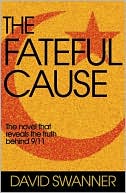

 |

|

The average rating for The Fateful Cause based on 2 reviews is 4 stars.
Review # 1 was written on 2013-02-02 00:00:00 Kevin Wiswniewski Kevin Wiswniewski"One's private life is always with one..... it is a secret city in which one must always live, and whose gates one will never pass through, whatever may be going on in the world outside." The characters in this novel get their lives all tangled up with the Russian Revolution, which becomes almost incidental to what goes on between them. It is beautifully, carefully written, with a real flavour of Russia as we see it in the works of Dostoievsky - the pity, the despair, the elation, the love. And the descriptions are superb - you can feel the snow crunch under your boots, you can hear the ice cracking on the Neva, and see the colours of the winter night sky. Here is a flavour of Walpole's ability to create an image - they are acting a French farce when the Revolution has just begun - "I pitied and admired the actors, spontaneous as a rule, but now bravely stuffing any kind of sawdust into the figures in their hands, but the leakage was terrible, and the sawdust lay scattered all about the stage." I can't see why Walpole is so out of fashion, this is an excellent book. I certainly do not intend to curtail my Walpoling activities. |
Review # 2 was written on 2017-03-19 00:00:00 Nancy Schimmel Nancy SchimmelCapuchin Classics publ.2012 foreword by Bridget Kendall Written by an English writer living in Russia in at the time of the Russian Revolution, the novel wonderfully depicts gentry life in St.Petersburg (Petrograd) as the Revolution approaches and then unfolds in its earliest days. His familiarity with the ethos of the city, its topography, its mythic qualities are impressive, as is his knowledge of Russian expressions. The style and content could place the novel in the tradition of Tostoy and Turgenev. In this sense it is an intimate portrait of a family with all its drama, but it is also a fascinating portrayal of the earliest hints and realities of Revolution in its earliest days through the eyes of the Russian characters and their English friends. The narrative device is of a story told by a sympathetic outsider, showing what he himself has observed and what he claims to have learned from reports of the other characters. He professes to be outside the story, but he is a character in his own right, and interacts with the characters and the plot development. Bridget Kendall's Preface asks, "How do you make sense of revolution when you are in the midst of it? Hugh Walpole's answer was to allow us to see it the way he and his friends did, as a surreal backdrop to ordinary life until the simmering unrest turned to violence and it could be ignored no longer." She concludes, "In some ways his novel is also a lament: the cozy, lamplit, bourgeois world of pre-Revolutionary Russia which Walpole describes so affectionately was about to vanish forever." p.13 |
CAN'T FIND WHAT YOU'RE LOOKING FOR? CLICK HERE!!!